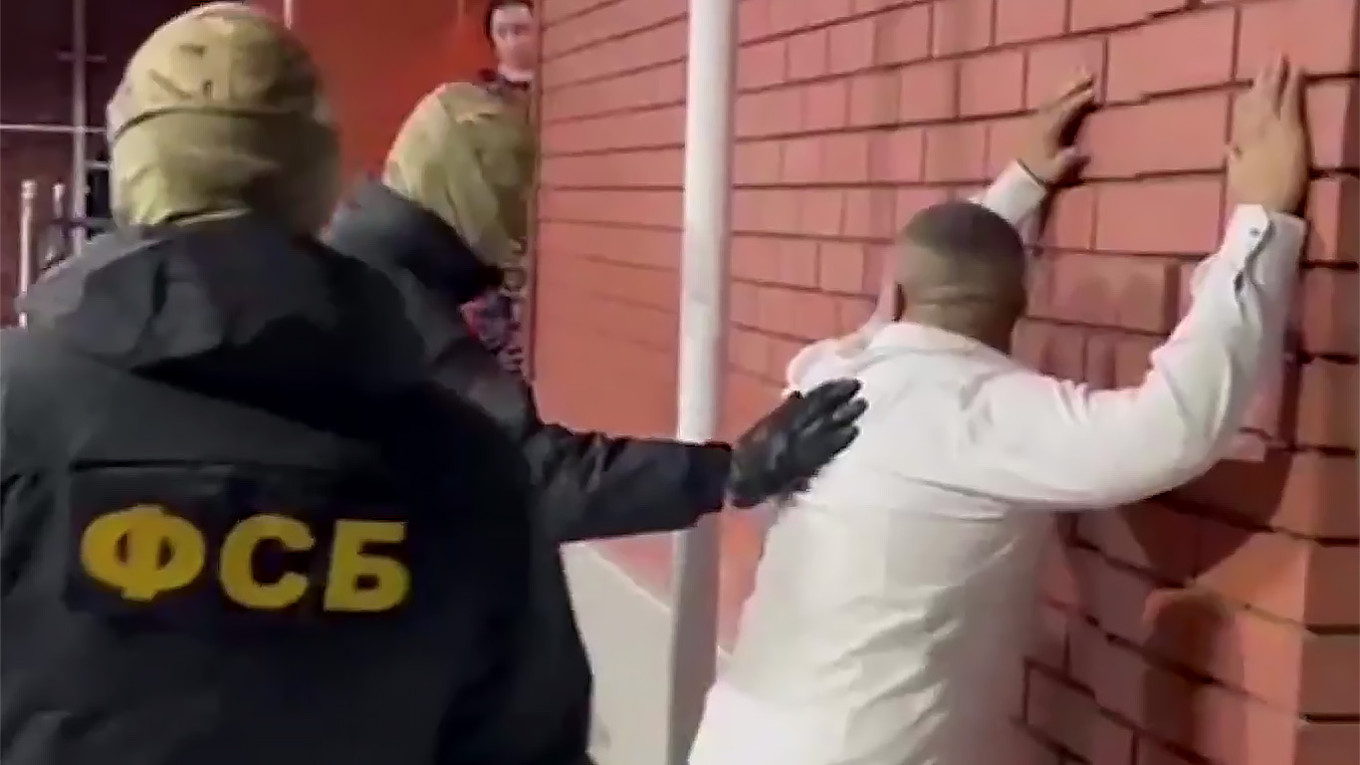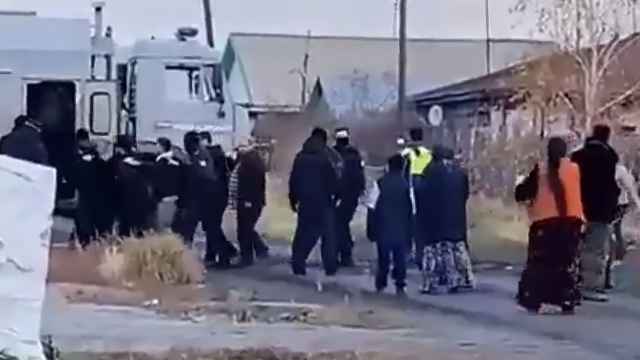Russian law enforcement officers seized weapons and handed out military summons to Roma amid a fresh wave of police raids in the Chelyabinsk region, where a murder last month ignited long-simmering ethnic tensions and sparked local reprisals against the local Romani community.
Chelyabinsk region police have carried out at least six “crime prevention” raids over the past three weeks, according to the news outlet 7x7. Nadezda Demeter, who serves as regional head of Russia’s largest Romani diaspora organization, slammed the ongoing police raids this week, describing the crackdown as collective punishment against Roma.
Police officers, Federal Security Service (FSB) agents and National Guard soldiers conducted checks of 70 people at 15 separate addresses in the town of Troitsk, according to an Interior Ministry statement published Friday. An accompanying video showed men in uniform entering private homes, where male residents were shown standing or lying with hands behind their backs.
Troitsk was characterized as “a densely populated area of persons prone to illegal activities.” The Chelyabinsk region news website Kurs Dela reported that those targeted in the raids were Roma.
Chelyabinsk’s regional Interior Ministry said an unspecified number of firearms, ammunition and other weapons were seized for inspection, including for possible arms trafficking violations.
Another unspecified number of residents were handed military summons, police said, adding that they plan to carry out more raids in the future.
Troitsk lies around 100 kilometers (57 miles) south of Korkino, where residents damaged property and clashed with riot police last month amid rumors that two Romani men stabbed a woman to death.
Regional investigators arrested a 17-year-old male on suspicion of killing the woman, a taxi driver who had been driving him home as a passenger. He was placed in pre-trial detention until Dec. 24.
Days later, Chelyabinsk region Governor Alexei Teksler ordered police raids at the homes of Romani residents as he reprimanded local authorities for “failing to identify an ethnic conflict” that spilled out into violence.
The town’s mayor announced her resignation after federal investigators claimed local authorities ignored “long-standing concerns about the Romani community’s unlawful behavior.”
A Message from The Moscow Times:
Dear readers,
We are facing unprecedented challenges. Russia's Prosecutor General's Office has designated The Moscow Times as an "undesirable" organization, criminalizing our work and putting our staff at risk of prosecution. This follows our earlier unjust labeling as a "foreign agent."
These actions are direct attempts to silence independent journalism in Russia. The authorities claim our work "discredits the decisions of the Russian leadership." We see things differently: we strive to provide accurate, unbiased reporting on Russia.
We, the journalists of The Moscow Times, refuse to be silenced. But to continue our work, we need your help.
Your support, no matter how small, makes a world of difference. If you can, please support us monthly starting from just $2. It's quick to set up, and every contribution makes a significant impact.
By supporting The Moscow Times, you're defending open, independent journalism in the face of repression. Thank you for standing with us.
Remind me later.






